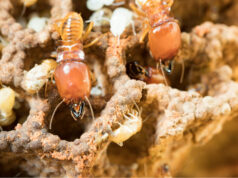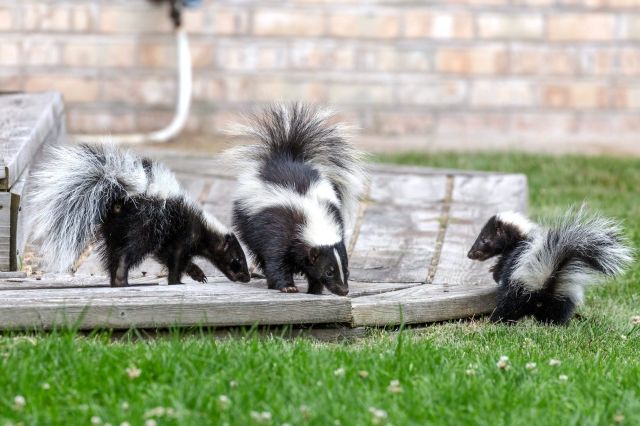
Skunks are charming little beasts with a very distinct black and white exterior. A particular negativity is associated with a skunk’s smell, which is said to be so overwhelmingly bad and so persistent that it makes some people resort to highly unconventional methods to try to get rid of it, like taking a tomato juice bath or bathing in a mixture of vinegar and water.
It turns out, however, that the foul odor is just one of the reasons people should keep skunks at a distance, as these furry little buddies also happen to be the carriers of some very nasty diseases that can endanger the life of both people and domestic animals.
From rabies and leptospirosis to tularemia and canine distemper, there are lots of potential health risks that come from skunk interactions.
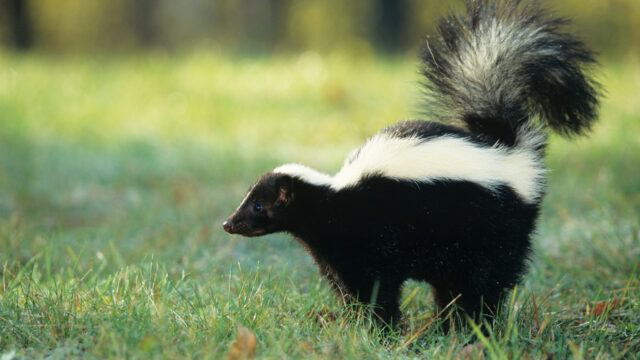
All that being said, skunks are what nature made them be, and there is absolutely no excuse for people to be brutal and violent if a family of these endearing little creatures starts visiting their yard or garden in search of food and shelter.
Instead, concerned homeowners are better off contacting specialized wildlife removal services like Critter Stop, who will come to their help with an effective and humane skunk trapping solution like the one described here https://critterstop.com/safe-wildlife-removal/skunk-trapping/.
This live skunk trapping service allows for the safe capturing and relocation of unwanted critters and ensures durable property protection against re-infestation.
Yet, the best way to deal with skunks is to avoid contacting them altogether, which is possible if you know what things attract these pests in your yard and which ones deter them.
Top 8 Things in Your Yard Likely to Attract Skunks
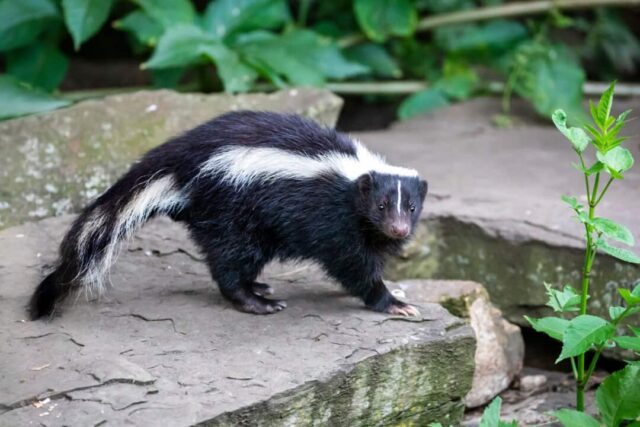
The three key skunk attractants in your yard you might want to address are:
1. Clear the Debri
Skunks aren’t picky about their sheltering options – they’ll take what you have: piled firewood, old tires, a heap of rocks or bricks, or an old canoe lying upside-down. Clear debris in your yard and around the house, and block access points to potential hideouts.
2. Trim Excessive Vegetation
Skunks love unkempt landscapes with overgrown bushes and shrubs to hide in, so make sure to neatly trim any vegetation that might attract the little trespassers and dispose of the trimmings promptly.
Also, tend to any fruit trees on your property: this involves cutting old branches and harvesting the fallen fruits before they start rotting.
3. Remove or Secure Open Food Sources

Trash cans and compost bins, bowls of pet food left outside overnight, and even bird feeders are all massive sources of attraction for hungry skunks.
Secure what can be secured with lids, make it your habit to give your pets treats inside, and move bird feeders away from your home.
4. Open Garbage Containers
Skunks are opportunistic feeders with a keen sense of smell. Open garbage containers or unsecured trash cans are like all-you-can-eat buffets for them.
The smell of discarded food and kitchen waste can easily waft through the air, attracting skunks in search of an easy meal. If your yard is regularly visited by skunks, it’s essential to secure your garbage containers with tight-fitting lids to prevent access.
5. Low-Hanging Fruit
Skunks have a diverse diet, and they won’t hesitate to enjoy ripe or fallen fruits from your trees. The sweet scent of overripe or fallen fruits can be a strong lure.
If you have fruit trees in your yard, make sure to regularly harvest the fruits and clean up fallen ones to reduce the attraction for skunks and other wildlife.
6. Inadequate Yard Lighting

Skunks are primarily nocturnal creatures, meaning they are most active during the night. A yard with inadequate lighting provides them with cover and security to move around without being easily seen.
Skunks prefer darker areas as they forage for food or explore their surroundings. Ensuring sufficient outdoor lighting can help deter skunks and other nocturnal wildlife from frequenting your yard.
7. Accessible Burrows
Skunks are known to dig burrows for shelter and nesting. Loose soil, mounds, or holes in your yard can provide tempting spots for skunks to create dens.
These burrows also serve as protection from predators and adverse weather conditions. If you suspect burrowing activity, consider filling in or blocking potential den sites to discourage skunks from making your yard their home.
8. Leaky Water Sources
Like any living creature, skunks need water to survive. Leaky outdoor faucets, birdbaths, or puddles can attract skunks looking for a reliable water source. If your yard has standing water or leaky fixtures, it’s advisable to address these issues promptly. Repairing leaks and minimizing standing water can help reduce the appeal of your yard to skunks.
In addition to the tips above, wildlife experts suggest making sure that the house does not have any openings or gaps around it. It is crucial to cover any openings under porches, decks, and steps and seal other crawl spaces that might tempt skunks to stay on the property even longer.
Top 3 Things in Your Yard Likely to Drive Skunks Away
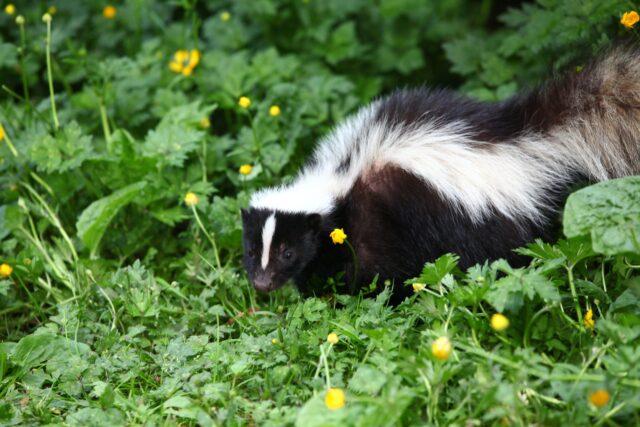
Now that you know what makes skunks choose your property, it is time to look at the three things that will most likely help discourage these critters from staying:
- Strong scents – Sprinkle natural repellents like cayenne pepper, citrus peels, or vinegar around areas where skunks may be present. If natural repellents fail, use heavy ammo and place rags soaked in ammonia solution around your yard instead.
- Fencing – Install fences at least three feet tall, and bury the bottom part deep into the ground to prevent skunks from digging their way in.
- Motion-activated devices – Installing motion-activated lights or sprinklers will help scare off unwanted nocturnal wildlife, skunks included. Place these strategically around areas where skunks might try to shelter.
If none of the above methods work, and you keep spotting skunks on your property, you’ll know the time has come to call in the pros.
Staying at Peace with Nature
As adorable as they are, skunks are better observed from far away. And it is not just about their nasty smell – these little characters can transmit dangerous diseases.


